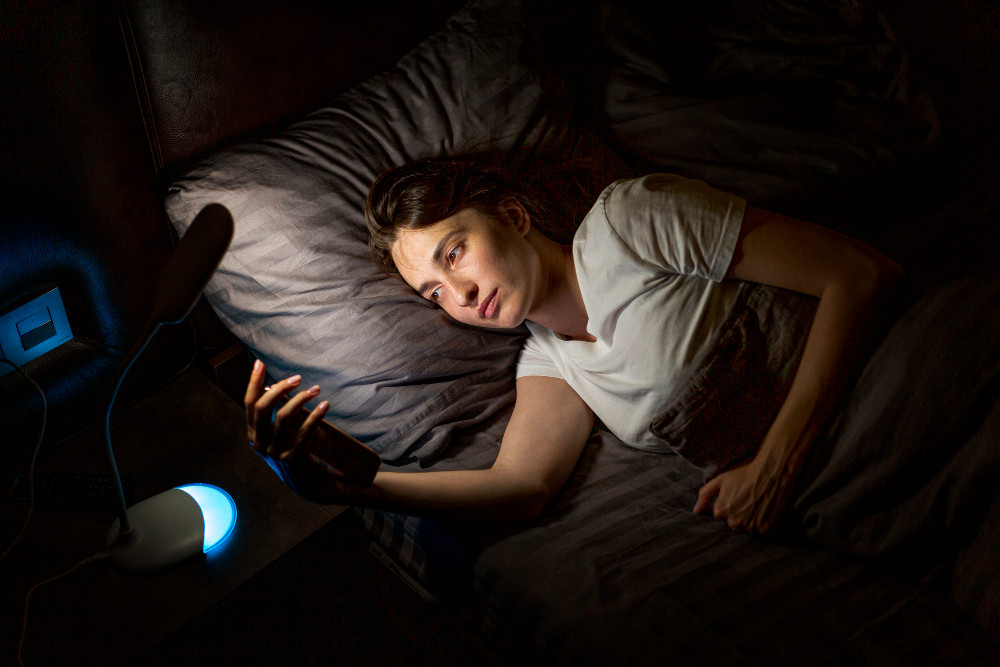Staying up late and sleep deprivation are two of the main challenges that new parents need to face. Newborns frequently require attention and care throughout the night, causing disrupted sleep patterns for parents.
Sleep deprivation with a newborn can have negative health consequences such as increased stress and anxiety, difficulty concentrating, an increased risk of illness and infection, an increased risk of accidents, and mood disturbances. How can you overcome sleep deprivation so that you do not have to stay up late every night and your baby is well taken care of? Check out these tips.
How parents can avoid sleep deprivation with newborns
To overcome sleep deprivation with your newborn, here are some things you can do:
Sleep when the baby sleeps
One of the most common suggestions you will hear is to sleep when the baby does. Newborns often nap for 2-4 hours for a total of 16–18 hours of sleep each day. Parents are frequently sleep-deprived at night, so make the most of your sleep time during the day, when your baby sleeps longer and deeper.
Divert household chores
Instead of doing housework during the day, use that time to sleep with your baby. Outsource household chores to your partner, family or friends who come to help, or a housekeeper.
Read more: Guidelines For Bathing Newborn
Share the nighttime chores
You and your partner can share tasks at night to reduce your workload and ensure that you both get enough sleep. For example, if the mother is breastfeeding, the partner can change the diapers or take turns doing so. When one parent takes over the responsibility of caring for the baby at night, the other parent must go to sleep. After a few hours, switch your roles.
Discuss task division with your partner to find a solution that works for both of you while still allowing you to support each other.
Place the babybox near the bed
Placing a baby box near your bed is an effective strategy for baby care at night. This allows you to respond more quickly to your baby's needs, resulting in better sleep.
Make sure the crib meets safety standards and that there are no excess objects in it. Avoid placing pillows, thick blankets, or toys in the crib.
Read more: What To Do When Your Newborn Has A Fever
Practicing sleep hygiene
Sleep hygiene is one method for ensuring you get enough rest while caring for your newborn. This includes avoiding caffeine, turning off your phone or other devices before bedtime, and sticking to the same sleep schedule every day.
Practicing sleep training
Experts recommend that babies begin sleep training between the ages of four and six months. Babies before this age have not reached a developmental milestone, so their sleep patterns are unpredictable and brief.
Sleep training at the appropriate age helps children sleep longer and independently at night, allowing parents to get more consistent sleep. Babies also learn to sleep independently after waking up without parental assistance each time.
Sleep training also promotes healthy sleeping habits, which improve the baby's cognitive function and development.
If you continue to have difficulty managing your sleep hours, resulting in anxiety, stress, and severe mood swings, you should consult your doctor.
If you need medical advice or consultation, you can either visit a doctor or make use of the consultation features that are available in the Ai Care application by downloading the Ai Care application from the App Store or Play Store.
Looking for more information about pregnancy, breastfeeding, and the health of women and children? Click here!
- dr. Monica Salim
Sleep Health Foundation (2024). Sleep Tips for New Mothers. Available from: https://www.sleephealthfoundation.org.au/sleep-topics/sleep-tips-for-new-mothers
Sarah Garone (2019). We Asked Sleep Consultants How to Survive the Newborn Days. Available from: https://www.healthline.com/health/sleep-consultants-share-tips-for-new-parents
John Hopkins Medicine. New Parents: Tips for Quality Rest. Available from: https://www.hopkinsmedicine.org/health/wellness-and-prevention/new-parents-tips-for-quality-rest
Denise Porretto (2023). How to Deal With Sleep Deprivation After Baby. Available from: https://www.parents.com/baby/new-parent/sleep-deprivation/how-to-get-sleep/
National Heart, Lung and Blood Institute (2022). What Are Sleep Deprivation and Deficiency?. Available from: https://www.nhlbi.nih.gov/health/sleep-deprivation
Eric Suni (2024). Sleep Training. Available from: https://www.sleepfoundation.org/baby-sleep/sleep-training











